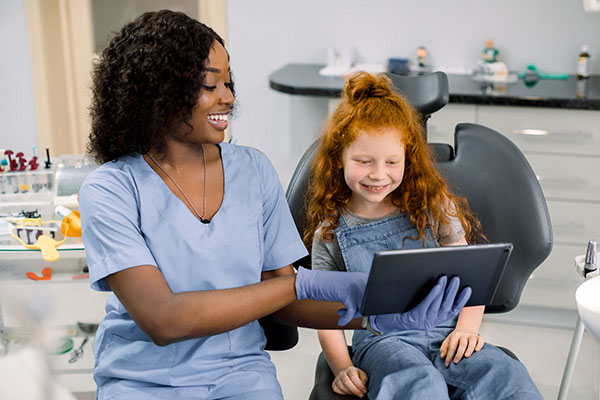 Plaque is one of the main concerns in pediatric dentistry. Pediatric dentists aim to prevent the accumulation of plaque on primary and permanent teeth. The absence of plaque leads to a healthy set of dentition. This then leads to a healthy body. If you want to find out how to keep plaque at bay, here are some tips.
Plaque is one of the main concerns in pediatric dentistry. Pediatric dentists aim to prevent the accumulation of plaque on primary and permanent teeth. The absence of plaque leads to a healthy set of dentition. This then leads to a healthy body. If you want to find out how to keep plaque at bay, here are some tips.
Two-minute brushing
Every person has bacteria in the mouth. These microorganisms thrive on sugar. Children love to eat sweets and starchy foods. That is why they are prone to having plaque. This sticky coating leads to the development of cavities. Pediatric dentistry prevention of plaque starts in the home.
Keeping plaque at bay and removing it at the same time needs hard work. This means brushing the child’s teeth three times every day, two minutes each time. It is common for children to brush for under two minutes. Parents should do this task for the child. By the time the child turns nine, parents may still need to supervise. Kids tend to take shortcuts when it comes to brushing.
Proper toothbrush selection and positioning
Another pediatric dentistry tip is holding the toothbrush at a 45-degree angle at the child’s gumline. This can help strip off more of the plaque. Brushing in a circular and gentle motion is also an efficient way to remove the stubborn biofilm. Choosing a toothbrush with the appropriate size can help clean the child’s mouth better. An electric toothbrush is also a better option. Choose one that has a timer and rotary action.
Reducing sugary foods
Sugar is the main source of sustenance for bacteria. It is only proper for parents to cut down sugar intake at home. Kids can also get sugars from bread, pasta, and rice. Parents should also lower the amount of starch in the family meals. That way, bacteria will not have enough to thrive inside the child’s mouth. This can prevent future pediatric dentistry treatments.
Using fluoride toothpaste and mouthwash
Fluoride is a natural element capable of strengthening teeth and fighting cavities. It is an ingredient in many brands of toothpaste. By two years old, children can use fluoride toothpaste. Helping them brush with a little fluoride toothpaste for two minutes can help remove plaque and protect the teeth from decay.
Setting a pediatric dentistry cleaning
A pediatric dentist can remove plaque and tartar from the child’s teeth. Pediatric dentistry scaling is an in-office treatment. Scheduling a routine pediatric dentistry cleaning can help remove and ward off plaque. After the cleaning, the pediatric dentist can apply dental sealants to the molars. This liquid barrier can block bacteria and food particles from sticking to the child’s teeth.
Pediatric dentistry routine appointments can elevate your child’s oral health
Modifying dental hygiene practices at home can help remove dental plaque. Maintaining routine dental checkups can keep plaque away from your child’s teeth. Diligence when it comes to pediatric dentistry practices tends to improve your child’s dental health. An appointment with your pediatric dentist can enhance the way you keep your child’s teeth plaque-free.
Request an appointment or call Bergen County Pediatric Dentistry at 201-312-6937 for an appointment in our Allendale office.
Related Posts
One of the primary goals of pediatric dentistry is to prevent oral health concerns rather than only dealing with them if they develop. In addition to educational services to help parents care for their child's teeth between visits, pediatric dentists offer preventive dental treatments that help reduce the risk of cavities, gum disease, and other…
An effective preventative treatment in pediatric-dentistry is the placement of dental sealants. While the procedure can be done for patients of all ages, it is more often used for children between the ages of 6 and 14, when their permanent teeth are coming in. Even though it is optional, the American Dental Association recommends it…
Pediatric dentistry focuses on oral health prevention and treatment for toddlers, early childhood, and adolescents. Tooth decay is a more common oral health concern that pediatric dentists treat. This review looks closely at how a pediatric dentist can treat (and help prevent) tooth decay.Children are highly vulnerable to cavities on primary teeth. Therefore, the primary…
